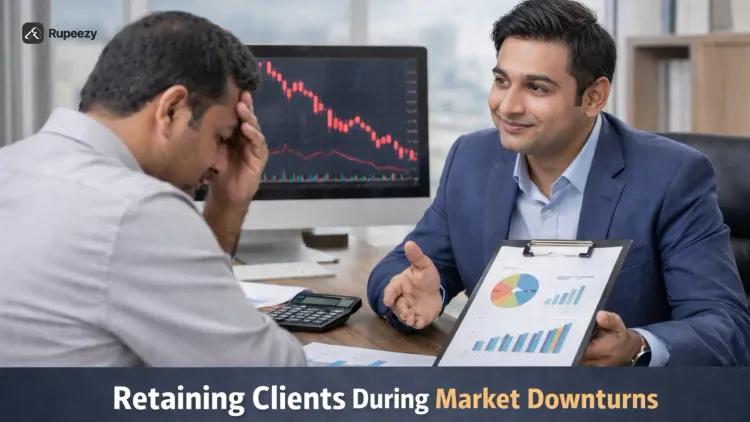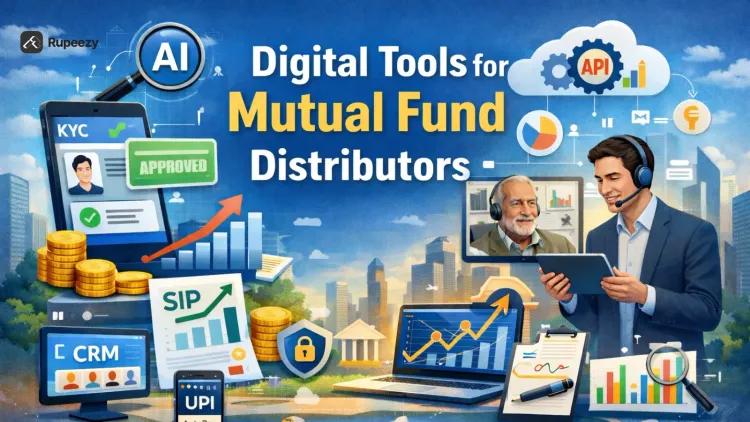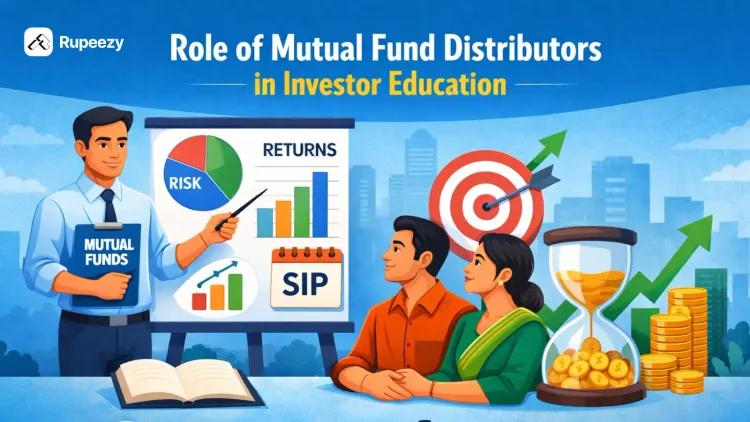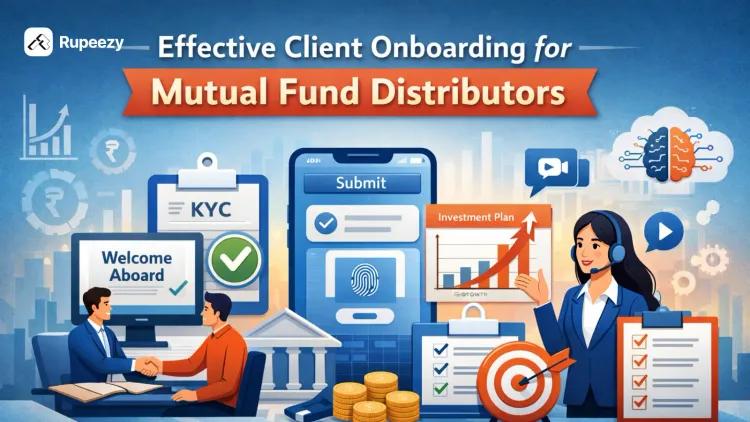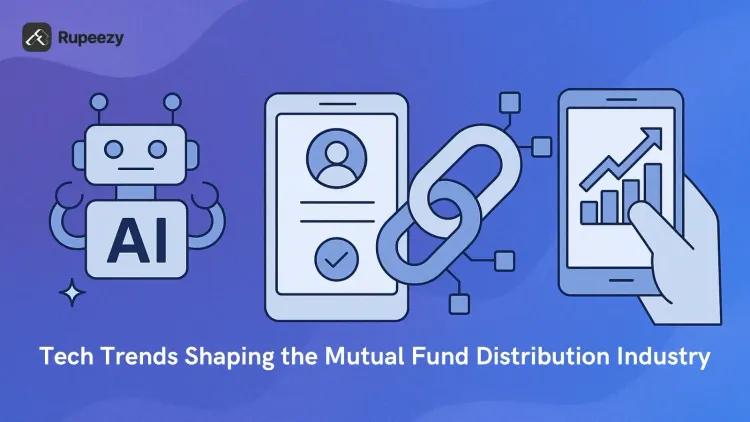MFD vs LIC Agent: Which Career Path is Right for You?


00:00 / 00:00
The financial advisory industry in India offers two prominent career paths for aspiring professionals: Mutual Fund Distributor (MFD) and Life Insurance Corporation (LIC) Agent. While both involve selling financial products and earning commissions, they differ significantly in terms of licensing, product offerings, income structure, and career growth opportunities.
This guide helps agents and brokers evaluate both options to make an informed career decision based on flexibility, earning potential, and long-term growth prospects.
Understanding the Basics
What is an MFD (Mutual Fund Distributor)?
A Mutual Fund Distributor is a SEBI-certified professional authorized to distribute mutual fund products from various Asset Management Companies (AMCs) across India. MFDs help clients select suitable mutual fund schemes based on financial goals, risk appetite, and investment horizon. They can offer products from 45+ AMCs, providing unbiased recommendations across 1700+ mutual fund schemes.
What is an LIC Agent?
An LIC Agent is an authorized representative who sells life insurance policies exclusively from LIC of India. They operate under IRDAI regulations and are backed by India's most trusted insurance brand. While their product range is limited to LIC offerings, they benefit from strong brand recognition and government backing.
Key Differences: MFD vs LIC Agent
Licensing and Certification
MFD Requirements:
To become a Mutual Fund Distributor (MFD), you must meet the following criteria:
Minimum Qualification: 10+2 (Higher Secondary)
Examination: Pass the NISM Series V-A: Mutual Fund Distributors exam with at least 50% marks
ARN Registration: Obtain an AMFI Registration Number (ARN) ? Fee: Rs. 3,000 + 18% GST
Exam Fee: Rs. 1,500
Processing Time: 2 - 4 weeks
Validity:
Both your NISM certification and ARN are valid for 3 years. Before expiry, you can renew them through a CPE (Continuing Professional Education) program - a short refresher training that keeps your license active without retaking the exam.
Renewal Fee: Rs. 1,500 + 18% GST
LIC Agent Requirements:
Minimum qualification: 10th standard
Complete 50-hour LIC training program
Pass the IRDAI insurance examination
Training cost: Rs.2,000-Rs.5,000
Time to start: 4-6 weeks
Validity: 3 years (renewable)
Product Portfolio
MFD Product Range:
1700+ schemes (equity, debt, hybrid, index funds, ETFs)
Multiple investment options: SIP, lump sum, STP, SWP
Can expand into insurance, PMS, and financial planning
LIC Agent Product Range:
Only LIC products
Term insurance, endowment plans, ULIPs, pension plans, child plans
Limited to a single company but backed by India's largest insurer (66% market share)
Income Structure
MFD Commission:
Upfront: No upfront
Trail Commission: 0.7% annually on AUM (recurring passive income)
Example: Rs.10 lakh investment = Rs.10,000-Rs.25,000 upfront + Rs.10,000-Rs.12,500 annually
Also Read: Mutual Fund Distributor Commission
Income Growth: Compounding model with increasing passive income as AUM grows.
LIC Agent Commission:
First Year: 15-35% of premium (higher for term plans)
Renewal Years 2-5: 5-15%
Years 6-10: 5-7.5%
Example: Rs.50,000 premium = Rs.7,500-Rs.17,500 first year (declining renewals)
Income Growth: Volume-driven model requiring continuous client acquisition.
Work Flexibility
MFD:
Complete independence with flexible hours
Work remotely from anywhere
Minimal infrastructure needed
No mandatory sales targets
Digital-first operations
LIC Agent:
Field work with client visits required
Attached to specific LIC branches
May include Monthly/annual sales targets
More paperwork and physical documentation
Structured organizational environment
Comparison Table: MFD vs LIC Agent
Parameter | MFD | LIC Agent |
Licensing Authority | SEBI, AMFI | IRDAI |
Minimum Education | 10+2 | 10th standard |
Entry Cost | Rs.4,500 | Rs.2,000 - Rs.5,000 |
Time to Start | 2-4 weeks | 4-6 weeks |
Product Range | 45+ AMCs, 1700+ schemes | LIC products only |
First-Year Commission | 0.5-2.5% of investment | 15-35% of premium |
Recurring Income | Trail (0.7% annually) | Declining renewals |
Income Stability | High (passive trails) | Moderate |
Sales Targets | None | Yes (monthly/annual) |
Work Flexibility | Very high (remote) | Moderate (field work) |
Long-Term Earning | Very high (compounding AUM) | Moderate to high |
Expansion Opportunities | Financial planning, insurance, PMS | Limited to LIC |
Technology Integration | High | Moderate |
Career Scalability | Excellent | Good |
Income Potential Comparison
MFD Income Trajectory
Year 1-2: Rs. 20,000 - Rs. 50,000/month
Year 3-5: Rs. 50,000 - Rs.1,50,000/month
Year 5+: Rs. 1,50,000 - Rs. 5,00,000+/month
Successful MFDs with 200-500 families earn Rs. 50 lakhs-Rs.2 crores annually from trials
LIC Agent Income Trajectory
Year 1-2: Rs.15,000 - Rs.40,000/month
Year 3-5: Rs.40,000 - Rs.1,00,000/month
Year 5+: Rs.1,00,000 - Rs.3,00,000/month
Top performers earn Rs.25 lakhs-Rs.1 crore annually through volume
Which Career Should You Choose?
Choose MFD If You:
Prefer digital, location-independent work
Want long-term passive income through trials
Enjoy financial planning and portfolio management
Have a network among urban investors
Are you comfortable with technology platforms
Want flexibility to expand into other financial products
Choose LIC Agent If You:
Prefer face-to-face client interactions
Want the backing of India's most trusted insurance brand
Are comfortable with field visits and sales targets
Have strong local community networks
Need higher immediate commissions
Prefer a structured organizational framework
Can You Do Both?
Yes! Many professionals pursue both certifications for:
Diversified income streams
Comprehensive client solutions
Enhanced credibility as holistic advisors
Risk mitigation across product categories
Grow Your Distribution Business with Rupeezy
Whether you’re a Mutual Fund Distributor or an aspiring one, partnering with a trusted platform like Rupeezy can elevate your business to new heights. Rupeezy empowers distributors with modern tools, transparent operations, and powerful digital solutions to help you grow faster and serve clients better.
Why Partner with Rupeezy?
Seamless Onboarding: Quick and paperless registration process to get you started effortlessly.
Wide Product Access: Distribute a range of mutual fund schemes from top AMCs across India.
Enhanced Client Experience: Offer clients a smooth investment journey with an intuitive digital platform.
Transparent Commissions: Track earnings and AUM growth in real time through your dashboard.
Dedicated Support: Get end-to-end assistance from our team for onboarding, compliance, and training.
Business Growth Tools: Access marketing resources, reports, and insights to scale your distribution network.
By partnering with Rupeezy, you can expand your reach, build lasting client relationships, and position yourself as a modern financial advisor offering goal-based investment solutions.
Conclusion
Both MFD and LIC agent careers offer rewarding opportunities in India's growing financial sector. MFDs enjoy flexibility, passive income, and product diversity, making it ideal for tech-savvy professionals seeking scalable practices. LIC agents benefit from brand trust, immediate higher commissions, and structured support, suiting relationship-focused professionals.
Success in either role depends on dedication, continuous learning, and genuine commitment to client goals. Many advisors start with one certification and add the other to maximize client value and earning potential. As the industry evolves with digital adoption, professionals who adapt to technology and changing client expectations will thrive.
FAQs:
1. Can I work as both an MFD and an LIC agent?
Yes. You can hold both certifications and operate as an MFD and LIC agent simultaneously. You must comply with SEBI/AMFI and IRDAI regulations separately. This hybrid model helps you offer complete investment and insurance solutions.
2. Which has better long-term earning potential: MFD or LIC agent?
MFDs often earn more long-term due to trail commissions that grow with AUM. LIC agents earn higher upfront commissions but need continuous new business. Both can be profitable with strong client networks.
3. How much investment is required to start?
To become an MFD, you’ll need Rs.5,000 – Rs.10,000 for exams, registration, and setup. For LIC agents, it’s around Rs.3,000 - Rs.5,000 for training and exams. Both are low-cost careers with high scalability.
4. Do I need prior finance experience?
No, prior finance experience isn’t mandatory. MFDs can self-study for the NISM exam, while LIC provides mandatory training. Basic financial awareness and good communication skills are helpful.
5. Which career offers better work-life balance?
MFDs usually enjoy flexible hours and virtual client meetings. LIC agents have more fieldwork and sales targets, though experienced agents can later achieve flexibility.
6. How do I renew my MFD or LIC license?
MFDs renew their ARN every 3 years after completing 30 hours of CPE training. LIC agents renew every 3 years by meeting targets or passing the recertification exam.
7. Can I switch from LIC agent to MFD or vice versa?
Yes. LIC agents can become MFDs by clearing the NISM Series V-A exam and registering with AMFI. MFDs can join LIC by completing training and passing the IRDAI exam.
8. How do clients view MFDs vs LIC agents?
LIC agents are trusted for insurance in smaller towns, while MFDs are preferred in cities for mutual fund expertise. In both roles, success depends on trust, transparency, and client service.
The content on this blog is for educational purposes only and should not be considered investment advice. While we strive for accuracy, some information may contain errors or delays in updates.
Mentions of stocks or investment products are solely for informational purposes and do not constitute recommendations. Investors should conduct their own research before making any decisions.
Investing in financial markets are subject to market risks, and past performance does not guarantee future results. It is advisable to consult a qualified financial professional, review official documents, and verify information independently before making investment decisions.

100% commission sharing for one year, Rs. 0 registration fee, and earn Rs. 2 Lakhs+ per month from home.
Explore MFDAll Category

